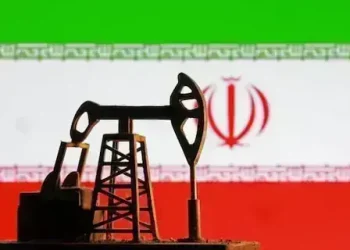The International Monetary Fund (IMF) on Thursday categorically stated that while the government has made progress in restoring economic stability, Pakistan’s vulnerabilities and structural challenges remain formidable’’.
“A difficult business environment, weak governance, and an outsized role of the state hinder investment, which remains very low compared to peers, while the tax base remains too narrow to ensure tax fairness, fiscal sustainability and meet Pakistan’s large social and development spending needs,” the IMF said in a press release.
The Washington-based lender made these remarks in a statement released after the IMF Executive Board approved Pakistan’s request for a $7-billion, 37-month Extended Fund Facility.
“The Executive Board of the International Monetary Fund (IMF) concluded the 2024 Article IV consultation1 and approved a 37-month Extended Arrangement under the EFF for Pakistan in the amount of SDR 5,320 million (262% of quota, or around US$7 billion).
“The Board’s decision allows for an immediate disbursement of SDR 760 million (or about US$1 billion),” read the statement.
The Washington-based lender further added that Pakistan has taken key steps to restore economic stability with consistent policy implementation under the 2023-24 Stand-by Arrangement (SBA).
“Growth has rebounded (2.4% in FY24), supported by activity in agriculture, while inflation has receded significantly, falling to single digits, amid appropriately tight fiscal and monetary policies.”
“A contained current account and calm foreign exchange market conditions have allowed the rebuilding of reserve buffers,” it added.
“Reflecting disinflation and steadier domestic and external conditions, the State Bank of Pakistan has been able to cut the policy rate by a total of 450 bps since June also supported by an appropriately tight FY25 budget,” it noted.
Pakistan’s economy on a sound path, says IMF chief after Executive Board approval
However, despite this progress, “Pakistan’s vulnerabilities and structural challenges remain formidable,” it warned.
“In particular, spending on health and education has been insufficient to tackle persistent poverty, and inadequate infrastructure investment has limited economic potential and left Pakistan vulnerable to the impact of climate change.
“Without a concerted adjustment and reform effort, Pakistan risks falling further behind its peers,” the IMF said.
The global lender said that because of the progress and stability achieved under the 9-month 2023 SBA, the authorities are embarking on renewed efforts to address these challenges, build resilience and enable sustainable growth.
Key priorities under the new EFF-supported program include “(i) rebuilding policy-making credibility and entrenching macroeconomic sustainability through consistent implementation of sound macro policies and a broadening of the tax base; (ii) advancing reforms to strengthen competition and raise productivity and competitiveness; (iii) reforming SOEs and improving public service provision and energy sector viability; and (iv) building climate resilience.”










 American Dollar Exchange Rate
American Dollar Exchange Rate